No adjectives added to characters
Interview with Danish director and screenwriter Jonas Risvig
By Kim Toft Hansen, 30 August 2024
How does the Danish director and screenwriter Jonas Risvig approach gender topics in his serial dramas? Read on in this interview with the popular Danish filmmaker, documentarist and major young adult ‘voice’ in Danish media.
The Danish director and screenwriter Jonas Risvig has been incredibly productive during the past five years. After having caught some attention with music videos, short film and documentaries, 2020 became the year for his major breakthrough. With the two young adult dramas Flokken [The Group] and Stikker [Snitch] premiering through Danish public service prodider DR’s channel for 9-14-year-olds DR Ultra, Risvig had paved the way for attention on a larger scale. Then, covid-19 hit… and production was generally impacted by the global lockdown.
However, Risvig used this opportunity to reach out to young adults in Denmark to listen to their experiences during lockdown. This turned into the no-budget YouTube series Centrum [Centre] in 2020, a series sharing thoughts and feelings during the global pandemic. The series included numerous cameos by Danish celebrities, most often one per episode. The series started as a project with very few financial opportunities, but with the second season Risvig started his creative endeavours with external partners, in this case Danish Cancer Society. This independent approach to financing serial drama has become a model for many later projects for the autodidact director.
After this, Jonas Risvig has caught the attention of not only Danish young adults, but since then he has been able to gain a voice in Danish media, dealing with the lives, identities, and experiences of contemporary young adults. This not only includes producing a number of series that thematically deal with prevalent issues of the age and target group. Risvig also uses his young adult casts as a creative counterpart in creating authentic and relevant stories for a young adult viewership. In this way, his approaches to taking young adults very seriously, addressing them at eye-level, have become a sneak-peek for a broader audience into the lives and capabilities of contemporary youth experiences.
After Centrum, Risvig has developed the DR series Salsa (2022-23) about young adult sexuality, the Viaplay series Drenge [Boys] about the toxic relationships within a tough masculine environment, and the straight-to-YouTube series Zusa (2022-) in collaboration with several external partners, including Danish Cancer Society, a psychiatry foundation, a Danish chain of shops and others. On 19 September, Jonas Risvig’s first feature film Kontra will premiere in Danish cinemas.
In this interview, we focus on Jonas Risvig’s approach to gender as a theme and creative choice in his work.
Often, I see that the point of view psychologically lies a bit with the girls, except in Drenge, which has a slightly different focus. Do you consciously incorporate a gendered perspective into your series?
The focus on girls right now is purely a creative choice, so I don’t know how exciting it is. It’s not about gender balance or highlighting girls more prominently. In the projects I’ve done so far, it has felt natural to have a mix between male and female main characters. The next two projects I’m doing will focus exclusively on boys. For me, it comes from within, and I try to refrain from bringing the gender debate into my creative space.
Do you experience particular challenges when you, as a man, tell parts of a story through the point of view of one or more girls?
When I start working on a film or series, I set out immersed in a theme and a set of issues. Slowly, I begin to realise whether the story is beneficially driven by a woman or a man. In my projects, it has often been most obvious to let the men drive my stories. But… as soon as I choose the most likely narrator, I try to turn the whole thing upside down and switch the genders in the process. Drenge [Boys] was originally a series about a group of girls in the provinces. Salsa was originally supposed to be about boys experimenting with their sexuality, but as you can see from the final results, the genders have been reversed in the process.
For me personally, it has never been about gender, appearance, religion, culture or ethnicity. My characters are always written without any kind of adjectives. So, the casting process becomes paramount to what direction our characters end up going. That said, I think it’s healthy to work with the opposite sex because it naturally forces you to recognise your own blind spots. Being a woman is both far from my own reality and at the same time extremely close the more we zoom into each other’s heads. Dreaming, falling in love, feeling lonely are emotions that resonate exactly the same no matter who you are, and these are the emotions I work with across all my characters and stories regardless of gender.
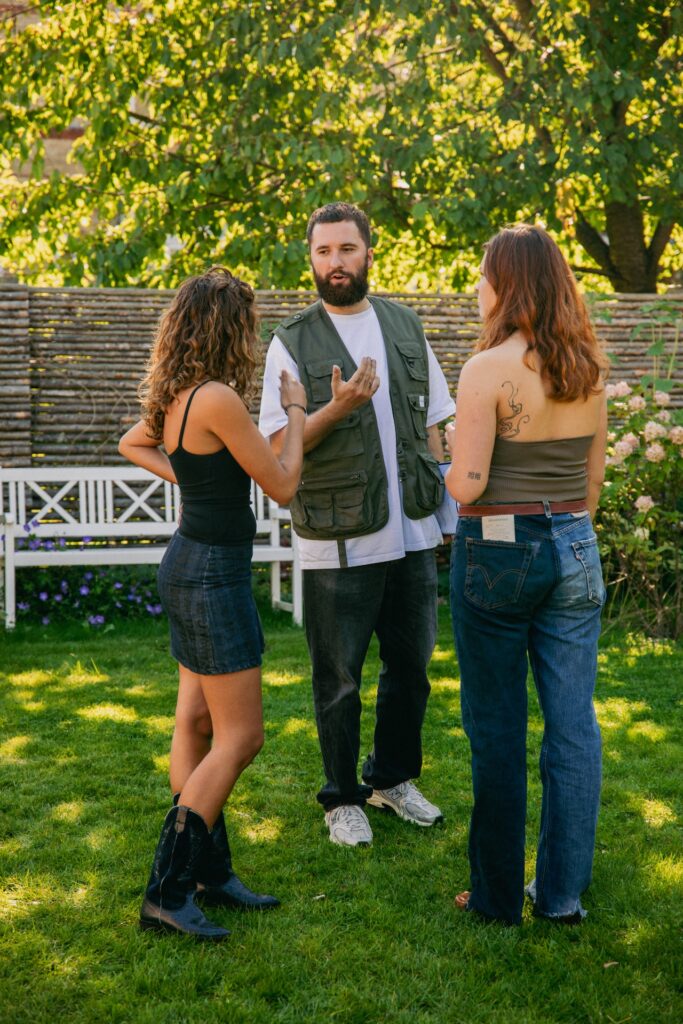
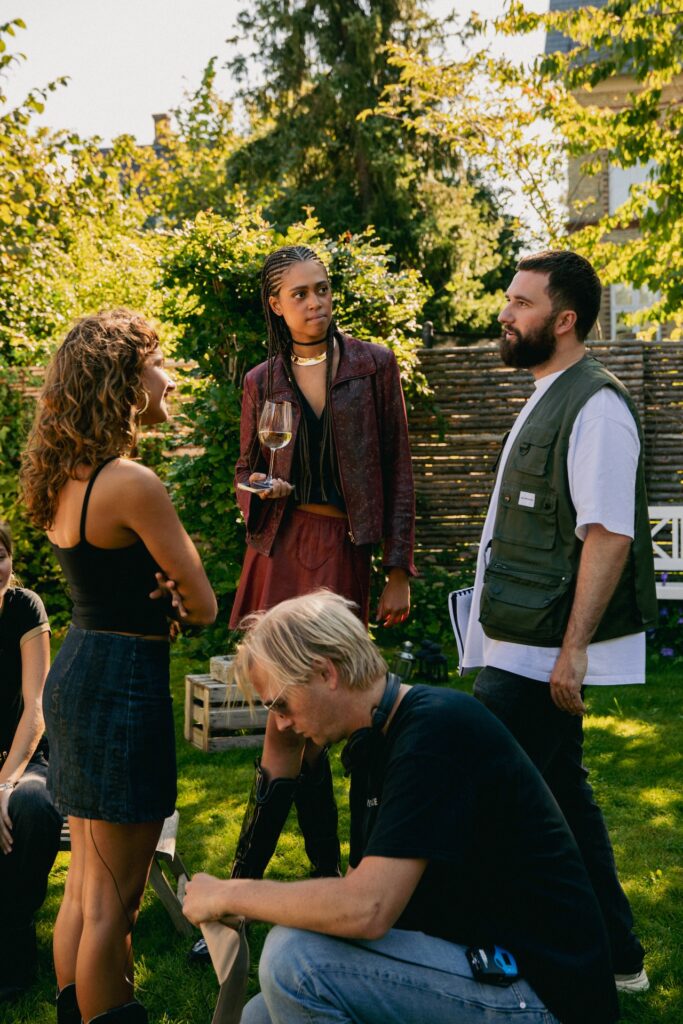
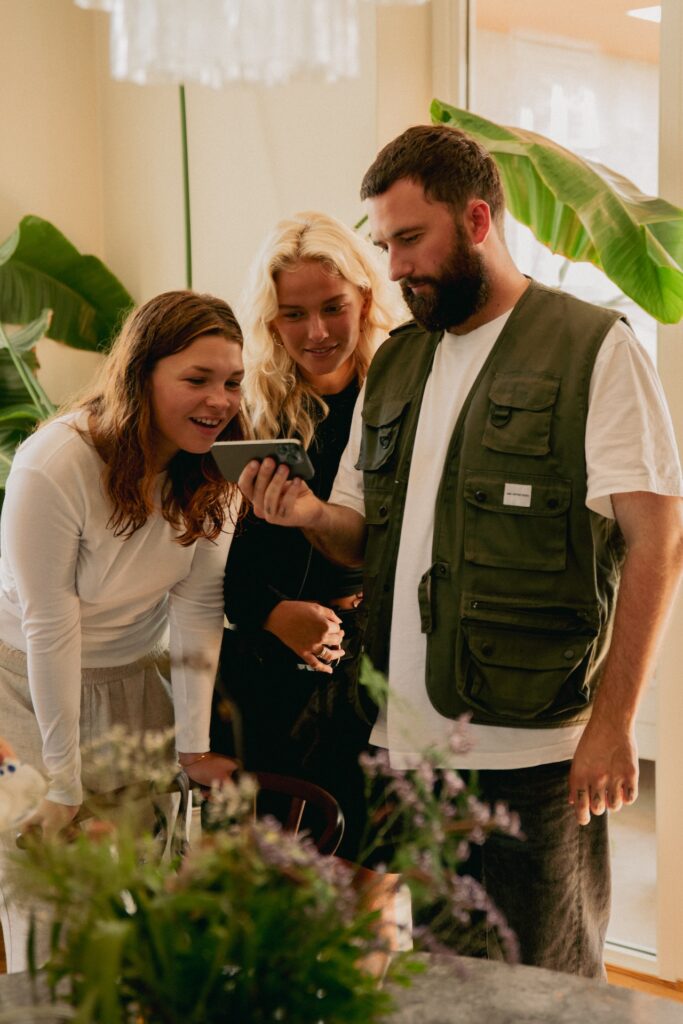
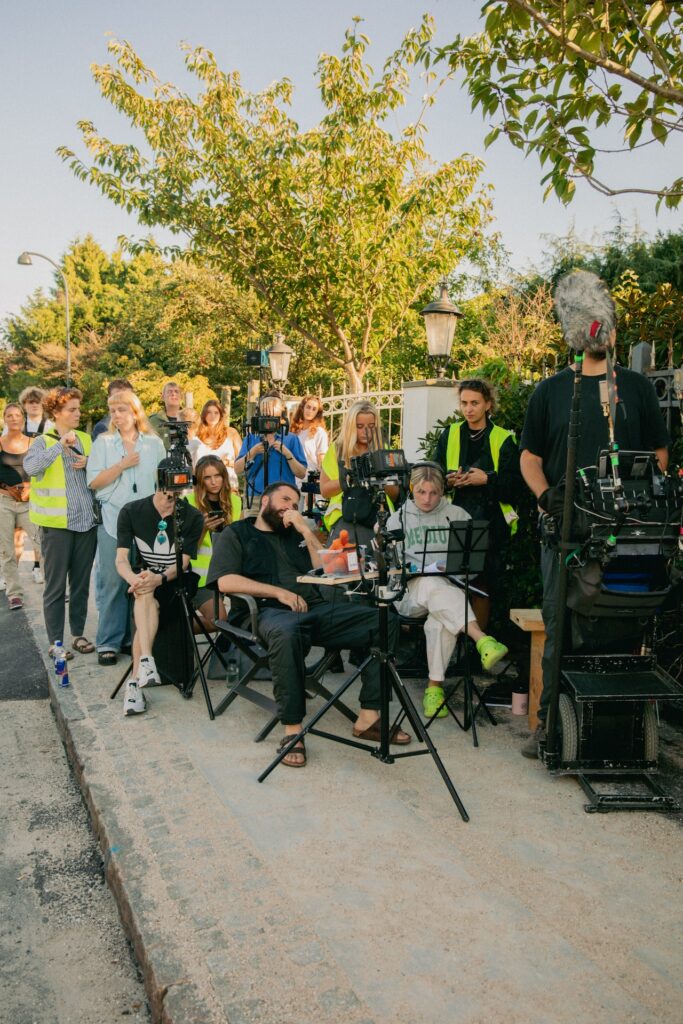
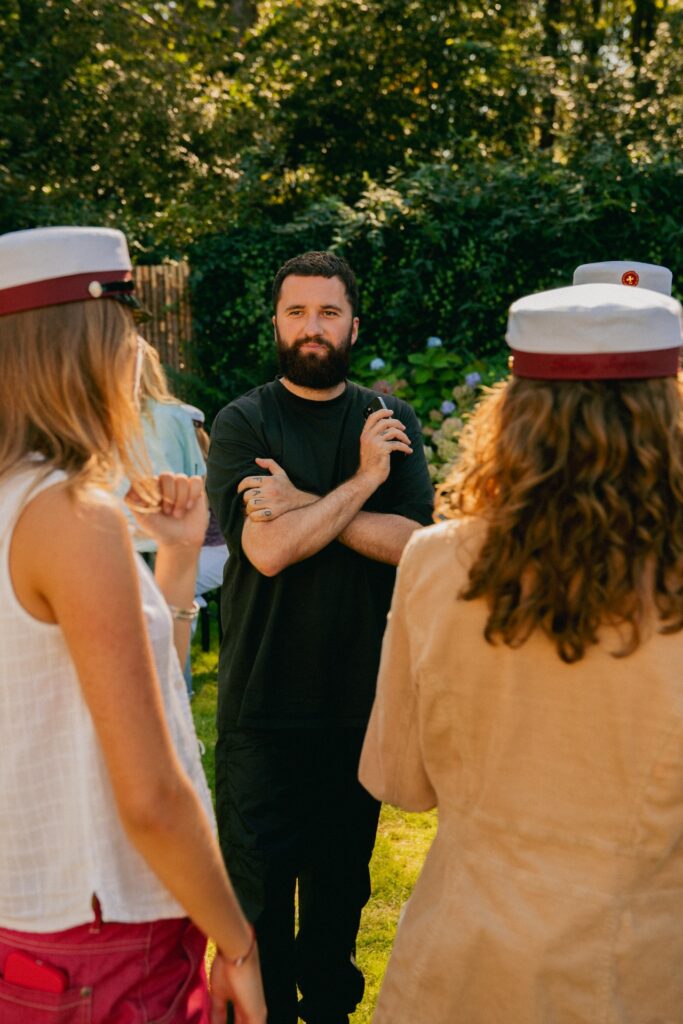
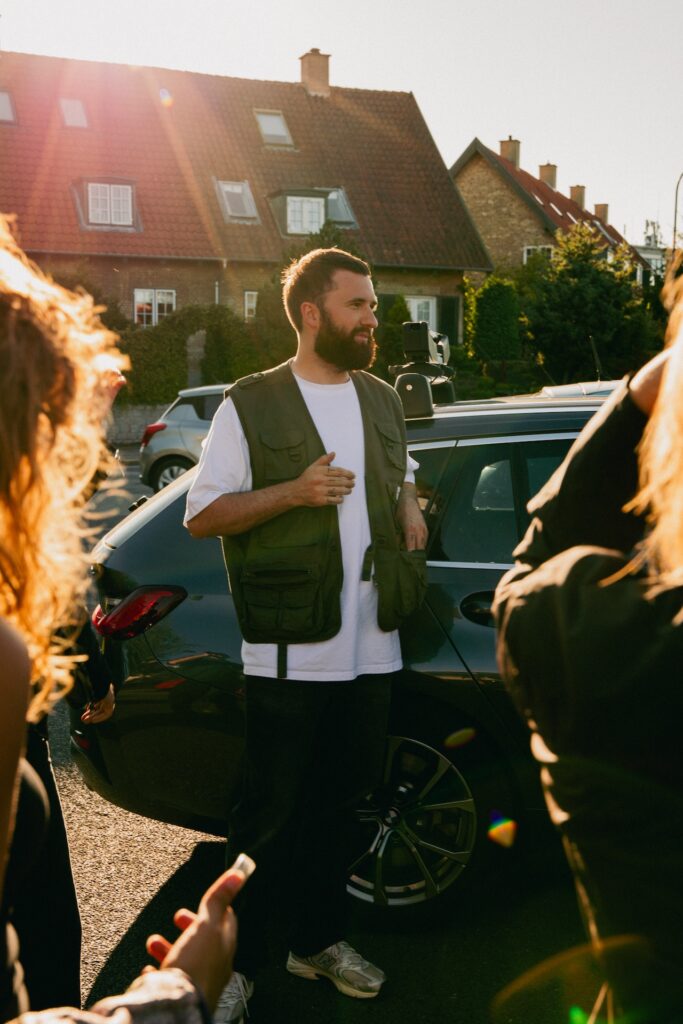
Figure 1. Jonas Risvig has been able to attract the attention of a young adult audience, which has been a very difficult for established ‘legacy’ media. His approach to authentic storytelling and the use of the right platforms has made him a contemporary ‘voice’ in Danish media (all images by Kristina Pedersen).
Do you have a particular way of working that keeps the debate out of the creative room and creates the naturalness you mention?
In my workroom, no adjectives are ever added to our characters. Right up until filming, I make sure to shuffle around gender, ethnicity, sexuality, etc. It makes for some amazing discoveries to keep an open mind when characters can be swapped and changed depending on how the themes start to shape the plot of the story. We have a huge responsibility to ensure both representation and diversity, but when I write, I try to keep any political agenda out of my space. When you move into the casting process and start getting specific about the composition of your cast, it becomes natural and important to review the composition for diversity and multiculturalism.
Do you feel that it’s the lack of focus on gender in the role descriptions that gives the naturalness you mention – which is also experienced when watching the series?
In my writer’s room, we try to steer clear of the stereotypes of what it means to be a boy or girl. Female or male. In Salsa, the girls talk even uglier than you’re used to hearing from the boys, and it was hugely rewarding to realise that when we swapped the genders and left the lines as they were, it actually increased the authenticity. People tend to put people in boxes based on their gender, but I think you often realise that the most interesting characters are those who are fluid between genders and really could be anyone.
Figure 2: Jonas Risvig’s feature film Kontra premieres on 19 September 2024. Watch the trailer here to get a peek into the film’s universe and Risvig’s approach to young adult drama.
When in the process do you most often decide on the gender of a character?
Making films is all about making decisions and executing them in a way that works best for an audience. So, when we’re writing, I try to reflect as often as possible, and when I slowly get a sense that a character is starting to feel alive, we lock the gender of the character. But then we’re still totally open to all other aspects of the diversity of that character. This typically happens when we’ve written a few script versions that feel solid.
Do you sometimes with the cast work on the gender of the characters, i.e. can it change in the creative process and in the collaboration with the actors?
When my actors enter the projects, I want to be in control of the character galleries so that the actors also feel confident that I’ve built the team as strong as possible. But in initial conversations throughout the writing process, it often happens that the actors themselves have input that their relations could just as easily be a different gender than what I had in mind. It’s exciting to constantly challenge the boundaries between when something should be a man or a woman to create the most authentic and natural narrative.
Do you have any particular gender stereotypes that you are specifically working to avoid?
There are a few outdated gender stereotypes that I try to avoid. But that’s not something I have a language for. Naturally inside me, my decisions are based on a sense that gender is so fluid today and that the new generation is so far ahead of me that I need to think less in boxes and allow characters to have dynamic personalities and relationships with themselves and each other.
For a complete overview of Jonas Risvig’s production, take a look at his IMDB profile. Many of his productions are also available through his personal YouTube channel.
Frontpage photography by Phie Beckett Stenbæk.


